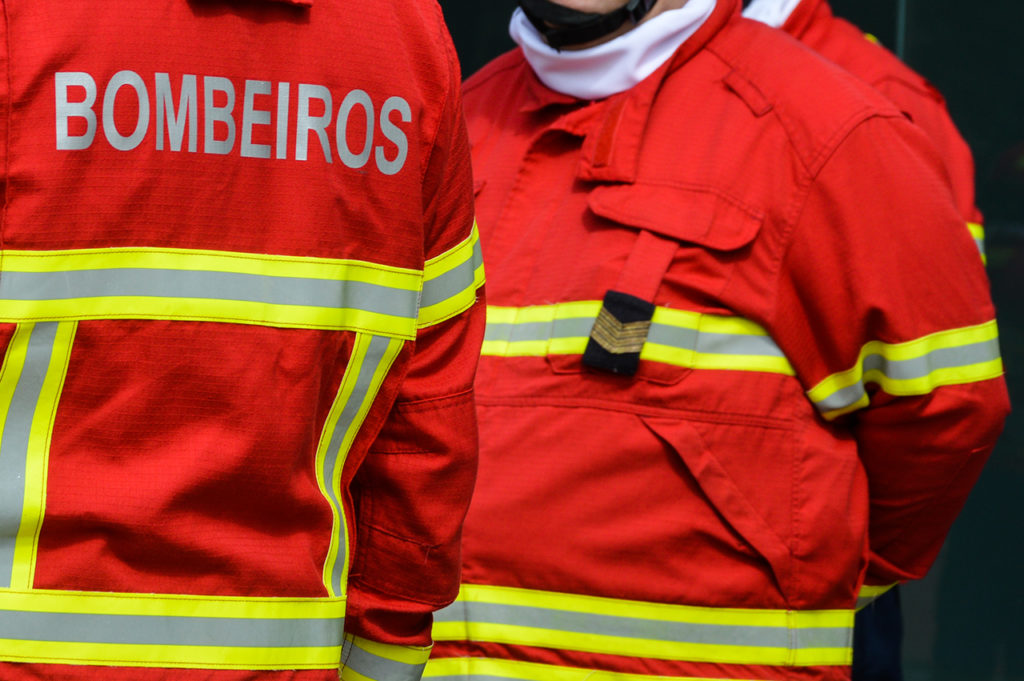The creation of a new specialized unit within the GNR, which replaces the Intervention Group for Protection and Relief (GIPS), with broader competences, and the creation of a new National Civil Protection Authority, which now integrates the component of emergency. These are two of the many decisions taken yesterday by the Government in a Council of Ministers dedicated to the theme of forest fires and Civil Protection, which introduce major changes.
At this meeting of the members of the Government, several diplomas were approved that affect the organic structure of various entities with responsibilities in terms of Civil Protection.
From the outset, until now the National Civil Protection Authority, which changes its name to the National Emergency and Civil Protection Authority (ANEPC), and will have a “greater territorialization of the operational structure, adjusting it to the inter-municipal scale”.
The diploma establishes the organic of the new ANEPC also contemplates the creation of the Special Civil Protection Force, «through the integration of the operational who currently perform functions in the Special Fire Brigade in their own career»
The reinforcement of the structure and capacity of the National Relief Operations Command, the consolidation and reinforcement of the management structure and the operational structure, «with posts being provided through competition», and a «reinforcement of the attributions within the scope of the preventive component of the protection system civil society and greater technical capacity for the new Authority» are other resolutions contained in the diploma.
The tide of change is also reaching the GNR, which will see the Intervention Group for Protection and Relief (GIPS) disappear, to make way for the Emergency Unit for Protection and Relief of the National Republican Guard. This new specialized unit, with national competence, will have the mission of “protecting, helping and assisting citizens and defending and preserving goods that are in danger”.
"This unit will have responsibilities within the scope of the execution of prevention and intervention actions in situations of serious accident and catastrophe, namely in the occurrence of rural fires, hazardous materials, floods, earthquakes, search, rescue and rescue in different environments , as well as in other emergency situations of protection and relief, including judicial inspection in aquatic and underwater environments», describes the Government.
Also at the level of the GNR, the decree-law that changes the status and career of forest guard was approved. "The diploma provides for career continuity, enabling the Government's decision to externally recruit 200 staff to reinforce the GNR's Nature and Environment Protection Service forest guard teams, with a view to increasing surveillance and inspection capacity. in the national forest territory”, reads a communiqué from the Council of Ministers.
Another decision that came out of yesterday's meeting, seen by the Government as "one of the most important", concerns the Integrated Management System for Rural Fires (SGIFR), "whose vision and objectives were approved today, seeking a paradigm shift that enhances the commitment, collaboration and involvement of all entities whose missions contribute to preventing and combating rural fires, as well as all private agents and the citizens themselves».
Yesterday's Council of Ministers also decreed a change in the organic nature of the Institute for the Conservation of Nature and Forests (ICNF), «aiming at the coordinated pursuit of national priorities in the integrated management of rural fires, as well as the approximation to different territories and its agents, based on an organization duly qualified for this new stage of its mission, and equipped with the necessary means for this purpose».
"This creates a more deconcentrated structure, oriented towards different territories, based on a profound reinforcement of the role and competences of regional services, without losing the necessary uniformity in action, while ensuring an increase in territorial proximity and the agency's capacity for intervention . It guarantees greater efficiency and agility for the purpose of fulfilling its attributions and institutional articulation, namely those resulting from the new SGIFR», according to the Government.

Firefighters were not forgotten and are covered in some of the approved diplomas.
With regard to volunteers, a decree-law was approved that reinforces the framework of benefits to which they are entitled. «The Government thus expands the incentives to volunteer work, dignifying and valuing the social function of firefighters, recognizing the importance of their mission in the protection and assistance system in Portugal. This amendment embodies the attribution of benefits in the use of public goods and services, as well as other social benefits. Free access to public museums and monuments, support for expenses with crèches and kindergartens and access to services at reduced costs stand out».
At the same time, special careers of firefighter and firefighter officer of the central, regional and local administration were created, through a diploma that «converges the careers of municipal firefighters and firefighters to a unified career, also allowing for the integration of the of the Fire Brigade Special Force and ICNF workers who perform the functions of forest sapper». In addition, "it creates new pay scales and establishes special transition rules for these careers".
Yesterday's Council of Ministers also approved a decree-law that regulates "the conditions and rules for the allocation and calculation of retirement pensions under the convergent social protection scheme and disability and old-age pensions under the general social security scheme" professional firefighters.
«The diploma corrects a situation of social injustice regarding the retirement of professional firefighters in the Public Administration and establishes a specific regime for these firefighters, whose retirement age is now equal to the legal retirement age, reduced by six years, also benefiting from a transitional regime. This is the maintenance of the exception regime already enshrined in the 2005 social security reform”, according to the Government.
In the area of the forest and its planning, decree-laws were approved that clarify "the constraints to building within the scope of the National System for the Defense of Forest against Fire", with the objective of "enabling the exercise of certain economic activities essential for development site, through compliance with demanding safety requirements and after a favorable opinion from the municipal forest defense commission", as well as a diploma that changes the legal regime of planning, management and intervention plans in the forest area and another that introduces changes to the legal regime “to which afforestation and reforestation actions using forest species are subject”.
At the meeting of Government members this Thursday, it was also decided to reform the current training model in the area of civil protection and create a National System for Monitoring and Communication of Risk, Special Alert and Warning to the Population.
"The measures to be adopted are based on the conclusions and recommendations of the reports produced by the Independent Technical Commission (CTI), mandated to analyze and investigate the facts that occurred in the 2017 fires", concluded the Government.
The full communiqué of the Council of Ministers of yesterday, the 25th of October, can be consulted here.



















Comments